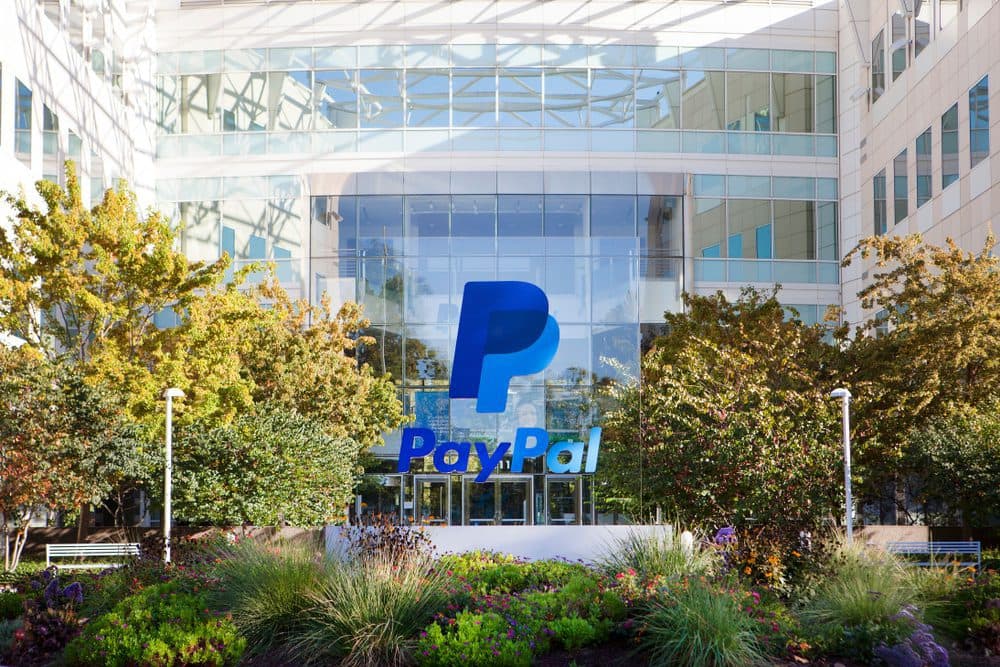Custody is Key as PayPal Goes for Digital Wallets
As digital wallets begin to play an important role in the disbursement and movement of central bank-backed digital currencies (CBDCs), PayPal is still looking for ways to offer cryptocurrency custody services, including its recent acquisition of Curv. The deal is reportedly […]

SOURCE: SHUTTERSTOCK
- PayPal says acquisition is part of effort to invest in talent and technology, and shape the role of digital currencies
- Payments giant is leaning in on the expectation that custodians will play a critical role in CBDCs, according to MoffettNathanson analyst
As digital wallets begin to play an important role in the disbursement and movement of central bank-backed digital currencies (CBDCs), PayPal is still looking for ways to offer cryptocurrency custody services, including its recent acquisition of Curv.
The deal is reportedly valued at $200 million and is the latest in a string of deals for PayPal. In 2019, the company bought Honey for $4 billion, and in 2018, the company bought iZettle for $2.2 billion. PayPal stated that the buy is part of an effort to invest in the talent and technology needed to build its vision for a more inclusive financial system.
PayPal CEO Dan Schulman has already said it would like to position itself as a leader in CBDCs.
“You think about how many [digital wallets] we’re going to have in the next two, three or five years, and we’re a perfect complement to central banks and governments to distribute those digitized forms of currency,” he said in the company’s fourth quarter earnings presentation last month. “This is a once in a multi-decade opportunity where the fundamental rails of the system are going to be redefined and we have a chance to help shape that.”
The San Jose, Calif.-based company launched bitcoin buying and selling to US users in October and plans to bring the same service to Venmo this year. It also plans to launch its crypto services internationally this year, and begin allowing customers to use their digital assets balance as a funding source when they interact with PayPal merchants.
The company has also sought to acquire a custodian for digital assets for several months now. Last year it was said to be in talks to acquire BitGo.
The CBDC spectrum
PayPal is leaning in on the expectation that custodians will play a critical role in central bank digital currencies (CBDCs), Lisa Ellis, a partner and senior equity analyst at MoffettNathanson, told Blockworks.
“Three or four years ago when these critical custodians were not widely established there were persistent issues with loss, fraud, breaches; crypto assets would just disappear,” Ellis said. “It’s really been the enabler of the space becoming more mainstream.”
Guidelines and design principles for implementing and using a US digital dollar could be the “most important milestones in our space for this year,” Ellis said, adding, “How that system is designed could have a lot of implications.”
There’s little known about what to expect from the US government on a digital dollar. It’s possible the US replaces printers with servers but continues “printing” digital dollars; this would involve the least possible amount of change or disruption in the payment system.
On the other end of the spectrum, China is investing in an all-new government-run payment system similar to ACH in the US. It’s currently being tested in Shenzhen, Shanghai and Beijing.
Where the US falls with a digital dollar is probably somewhere between those two extremes, and whatever it is will have enormous implications for legacy networks, particularly Visa and Mastercard, Ellis said.
To buy or to partner?
Today, PayPal has a partnership with Paxos, which has a custodian business but powers PayPal Crypto with its brokerage service. PayPal collects some of the spread between buy and sell prices it gets from Paxos.
“The custodian aspect of cryptocurrencies is so important that PayPal must have decided they need to actually own that capability directly, even though they’ve got a very good partner in Paxos,” Ellis said.
PayPal, which has 361 million consumer accounts and 29 million merchants in its global network, is well-positioned to dominate digital wallets by a large margin.
Over the last couple years a handful of fintech companies have made bitcoin trading services part of their product offerings to differentiate themselves, including Square’s Cash App, SoFi, Robinhood. More are expected to follow suit this year, according to Diogo Monica, president and cofounder of the digital asset custodian Anchorage, which serves a number of digital banks.
As digital finance products from the traditional banking and cryptocurrency worlds converge, however, customer acquisition and engagement will be the primary source of differentiation.
“On that dimension, PayPal has a very wide lead over competitors because they’re so much larger,” Ellis said.
While Curv is a smaller and younger company than BitGo, which uses different technology and has far more assets under custody, Ellis still sees the benefit for PayPal.
“Different firms have experimented with different approaches,” she said. “Custodianship is certainly a major differentiator and I can see why then a firm like PayPal would want to actually own a crypto custodian and all the assets themselves so that they can control the development.”
This article was updated on March 18, 2021, at 11:26 am ET.






